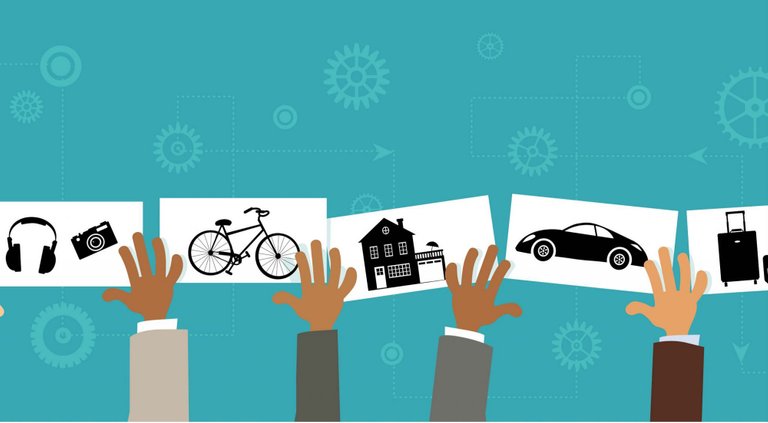
What is the sharing economy?
Put basically, this is the place people share things or services, as a rule on the web.
Regardless of whether you haven't heard the term, you'll think about the phenomenon.
Through lot applications and sites, it's easy to lease things by the day or the week – even by the hour. Incidentally it's free, however as a rule there's a fee.
For those doing the brrowing, it can save a lot of funds when contrasted with purchasing a fresh out of the plastic new thing that may just should be used once.
In the interim, for people who will share their stuff, the idea can enable them to make a decent side earnings – boosting their typical income.
And also conventional rental firms, a few well informed organizations have propelled platforms to encourage sharing between people.
Given the sharing economy is still in its earliest stages, a large portion of us have little knowhow about the plenty of organizations as of now in this industry. The hospitality application Airbnb and ride-hailing service Uber are two of the greatest and best-known players, and both are currently pillars in urban areas around the world.
What can be shared?
The sharing economy's potential reaches out a long ways past cars and extra rooms.
Hundreds, if not thousands, of platforms have established as of late. On the off chance that there's something you need to get or rent, the chances are there's a method for doing it.
You can share somebody's garden on the off chance that you live in a clamoring city, strike up work shares, collaborate with different explorers to share a visit, swap books, and even take somebody's cat out for the day. Social eating and acquiring DIY instruments is likewise possible.
It appears that present organizations have barely touched the surface layer of what's achievable, as well, as new ideas are developing constantly.
So I can acquire a car… or a cat. What are the benefits?
First of all, it could demonstrate all to be environmental friendly.
Consider it: rather than 10 individuals owning a car that they just need to use periodically, they can share another person's at whatever point the need arises. Certain ideas, for example, car sharing, where partners hitch a ride together, can significantly decrease CO2 discharges.
The shift from proprietorship can likewise make life more affordable. Rather than spending out on costly belonging, you can use a small amount of this money to obtain another person's and put the rest towards encounters.
It can likewise unite groups – particularly in the cat sharing illustration we said before. On the off chance that you cherish pets however can't have one yourself, hitting up an association with a kitten owner and their furry companion can enable you to meet new individuals. Even better, you can appreciate intermittent strolls in the recreation center without the obligations of caring for a pet full time.
Aren't there drawbacks to giving somebody a chance to obtain your cat?
For individuals with resources for share, trust can be an issue.
Enabling somebody to acquire your car or the adored family cat can be an headache on the off chance that you've just barely met them.
The sharing economy is addressing this by using rating systems which demonstrate the encounters borrowers and lenders have had in the past – giving true serenity. Debate can likewise be raised if a thing is returned broken, or not returned by any stretch of the imagination. Notwithstanding, reassuring a culture of sharing may take a brief period yet.
One dissatisfaction for clients right now is the fragmentation of the sharing economy, which implies you have to register and create a login for each administration you need to utilize.
In the interim, those hiring out their extra rooms, cars and different resources can be charged high exchange fees by the platforms that make these exchanges achievable.
How enormous is the sharing economy?
The insights are amazing.
As indicated by Statista, 44.8 mln grown-ups in the US utilized the sharing economy in 2016. This is set to twofold to 86.5 mln by 2021.
Research by Conde Nast Traveler demonstrates Airbnb had piled on 200 mln appointments by 2016. Uber says it has 75 mln clients and 3 mln drivers around the world – and together, they finished 4 bln trips in 2017 alone. What's more, these numbers cover only two surely understood organizations.
PricewaterhouseCoopers says the sharing economy has developed "dangerously fast," with its examination inferring that this development is maintainable. By 2025, it gauges exchanges crosswise over only five divisions of this sprawling industry will be worth nearly €570 bln in Europe alone (that is about $705 bln.)
Blockchain could shake up the sharing economy?
It's hard to believe, but it's true. A few business visionaries trust this innovation could dispose of the issues which are keeping down the sharing economy.
This is on the grounds that a Blockchain record could make transactions more secure and hard to mess with – empowering indepth insights about resources, and who is utilizing them, to be put away on a global database.
Smart contracts could likewise kill the requirement for sharing economy platforms that serve as mediators, driving down commission charges.
Blockchain new businesses, for example, ShareRing need to lessen fragmentation in the sharing economy by making it possible to lease and rent basically any benefit on one platform – with customers having the capacity to borrow anything through a single account and pay somebody in a flash through a dedicated cryptocurrency. The organization likewise needs to eliminate barriers, which means it is easy to utilize whether you were in Hong Kong or Havana, London or Louisiana.
Thank you for giving a nice explanation about the economy!